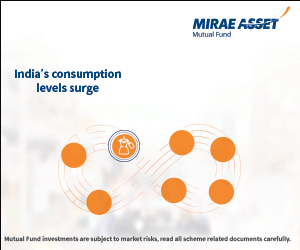I have some queries about my investments if they are good or not and what more I need
I like to ask some queries about my investments are good or not and what more I needed. Whom to ask, or help me?
1. Your salary is Rs. 864,000 per annum but you are saving only 86,560 (LIC Rs. 80,560 + PPF Rs. 500 x 12 months) for savings taxes under section 80C of the Income Tax Act 1961. What is the amount that your employer is deducting against EPF? If the total amount - EPF along with the above amount of Rs. 86,560 exceeds Rs. 150,000, then you are done with saving taxes under the above section.
2. The other way to save tax is to invest in National Pension Scheme (NPS). Please note that finance Minister Arun Jaitley in Budget 2015-16 introduced an additional income tax deduction of Rs. 50,000 for contribution to the New Pension Scheme (NPS) under Section 80CCD. This is over and above the limit of Rs. 150,000 provided under Section 80C of the Income Tax Act, 1961. NPS can give you much better return than that of recurring deposits. Therefore, out of this Rs. 8,000 that you are saving in RD per month you should allocate a portion to NPS. Not only that this will get you tax rebate, the return from NPS would also be superior. For example – if you invest Rs. 5,000 per month in NPS and the return is 10% then after 20 years you can expect to get a corpus of Rs. 38.00 Lakhs against your investment of Rs. 12.00 Lakhs. Whereas, Bank Recurring Deposit will get you maximum 7% and with that you can expect to create a corpus of Rs. 26.00 Lakhs only. Please note that we have not accounted the tax benefit that you will also get in NPS.
3. The remaining Rs. 3,000 from Bank recurring deposit and the Rs. 2,000 of Post Office RD can be invested in diversified equity mutual funds through monthly SIPs. This can build a corpus of 76.00 Lakhs after 20 years presuming returns @15% against the expected RD corpus of only Rs. 12.00 Lakhs. Please try this SIP calculator https://www.advisorkhoj.com/tools-and-calculators/systematic-investment-plan-calculator. Please also check the returns of Diversified Equity Fund SIPs over 10 years. As you can see the top performing funds have given 15-21% annualised returns.
4. It seems you are in your late twenties or early thirties. Therefore, this is also the time for planning for your kid’s higher studies and your retirement planning. As you have no mutual fund investments as of now beating the inflation in terms of returns from your current investment would be difficult. Therefore, you need to allocate some portion of your monthly savings in mutual funds and set financial goals against that.
We recommend you to read these article ELSS is one of the best retirement planning investments for young investors , ELSS investments can help you in both: Tax saving and retirement planning and 6 reasons why your retirement planning may fail to have a better understanding about retirement planning.
5. You should also try to clear off your personal loan. Our suggestion would be to close the monthly recurring deposits and pay off the personal loan first and then start the fresh investments. Overall, your current investments may only be able to beat the inflation rate. But real returns (Rate of return – inflation) could still be negligible.
POST A QUERY
Recent Queries
-
What is the benefit of mutual fund STP
Aug 29, 2019 by Nandu
-
How much to invest to meet target amount of Rs 2 Crores
Aug 26, 2019 by Dhiraj
-
Can you tell me return of various indices
Aug 18, 2019 by Dr. Ketan S Trivedi
-
Which Principal Mutual Fund scheme will be suitable for my retirement corpus
Aug 16, 2019 by Sanjay Gargish
-
In which mutual fund can I invest for short term period
Aug 3, 2019 by Chirag Agrawal
-
Can you please show the calculation method for selecting top consistent performing funds
Jul 30, 2019 by Abhishek Shah
-
How can I invest Rs 10 Lakhs
Jul 28, 2019 by Dr. Pradip Kumar Chatterjee
-
Can hybrid aggressive funds invest in large, mid and small cap stocks
Jul 27, 2019 by Pravin Jain
-
Is it possible to check rolling return versus category returns of multiple funds at a time
Aug 26, 2019 by Joel A Peres
-
Which Sundaram Mutual Fund scheme would be good for SWP for me
Jul 25, 2019 by Rabindra Chandra Bhattachara

Fund News
-
SBI Mutual Fund launches SBI Income Plus Arbitrage Active FOF
Apr 23, 2025 by Advisorkhoj Team
-
Motilal Oswal Mutual Fund launches Motilal Oswal Infrastructure Fund
Apr 23, 2025 by Advisorkhoj Team
-
Groww Mutual Fund launches Groww Gilt Fund
Apr 23, 2025 by Advisorkhoj Team
-
Bajaj Finserv Mutual Fund launches Bajaj Finserv Nifty Next 50 Index Fund
Apr 22, 2025 by Advisorkhoj Team
-
Mirae Asset Investment Managers (India) Pvt. Ltd. IFSC branch launches Mirae Asset Global Allocation Fund IFSC at Gift City
Apr 21, 2025 by Mirae Asset Mutual Fund




